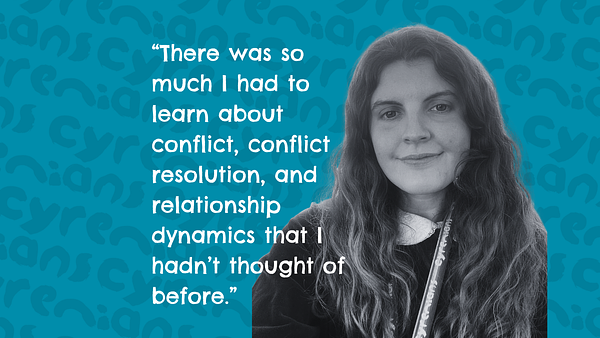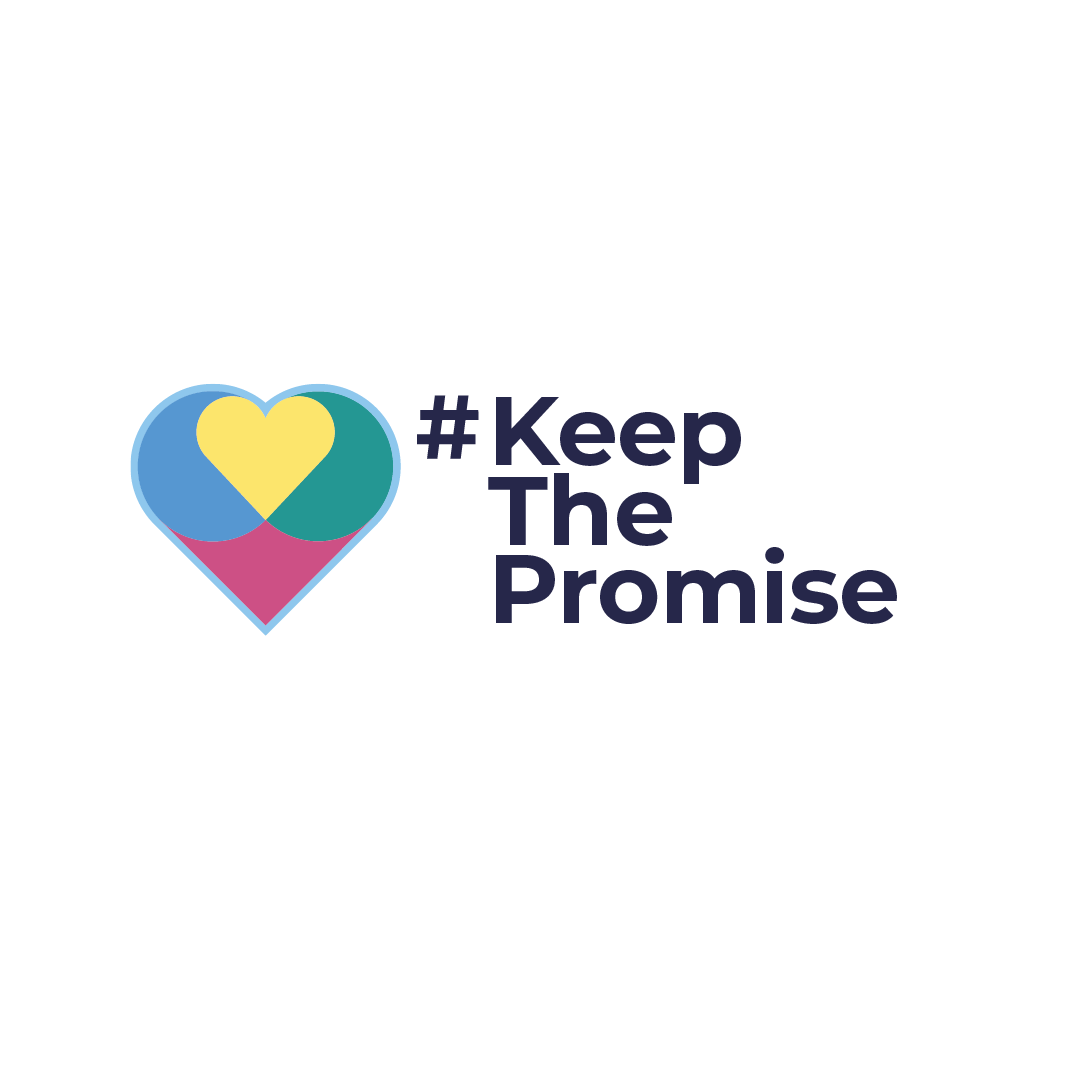What I Learned at the SCCR
We're sad to say goodbye to our Emotional Health and Wellbeing Lead Aimee after a year with us at the SCCR. Before she headed off, we asked her to reflect on her time at SCCR, and below she fills us in what she learned.

My name is Aimee McDonald, and I am (for the next few days, at least!) the emotional health and wellbeing lead at the SCCR. Before the SCCR I trained as a clinical associate in applied psychology, so I’m leaving the SCCR to return to work for at NHS in that role. I’m excited to return to healthcare but I will really miss working with the excellent team of people at the SCCR. The following is a little reflection on my time with the SCCR and the some of the things I learned.
Coming into the SCCR, I felt knowledgeable about mental health and young people because of my recent psychology training. However, there was so much I had to learn about conflict, conflict resolution, and relationship dynamics that I hadn’t thought of before.
Avoiding Blaming Language
For example, I-statements are a key conflict resolution tool that I learned about at the SCCR and will take forward into my new role and into my personal life. I-statements involve eliminating the use of blaming language and focusing on how someone’s behaviour makes you feel and then stating the kind of behaviour you would prefer the other person to use. This is an excellent way of making your needs and feelings clear in a conflict situation.
Tip of the Iceberg
Similarly, when developing training for parents, foster carers, and professionals, I had to be confident in discussing anger. I had a good understanding to start with, but the more I read, the more complex and interesting I understood the emotion ‘anger’ to be.
I was familiar with the emotional iceberg from previous work but was impressed to see that this concept is at the core of the SCCR’s resources and training. In a nutshell, the emotional iceberg is a concept that suggests that the emotion/behaviour we see or hear (such as anger, frustration, aggression) may be only the tip of the iceberg.
If we dig deeper and give the person an opportunity to talk about what’s going on, we might find out a whole range of difficult, vulnerable emotions lingering underneath the surface. In other emotions like shame, sadness, despair and loneliness, to name a few, might be having a big impact on a person’s behaviour, although these are less likely to be visible and obvious, unless we talk the person about it in a non-judgemental and supportive way. In the future, I will be using the emotional iceberg when talking to parents about anger in children.
Opportunities Knock
Another great thing about working for the SCCR has been all the opportunities to take part in events I would never have had the opportunity to attend. I’ve presented on the main stage at the Children in Scotland conference (alongside a group of fantastic young leaders who kindly shared their stories with the audience); co-delivered a workshop at the SCCR’s Big Family Event and the SCCR online conference; and presented to audiences from school pupils to foster carers to mental health tribunal lawyers!
Learning Zone
I was also able to build a bit of a digital footprint too, using some of my knowledge to help our Digital Media and Content Manager, develop The Learning Zone for Parents and Carers.
Overall, I’d like to extend a big thank you to the SCCR for being such welcoming and kind team members, and to Cyrenians staff as a whole for being there with me throughout my year within the organisation. It has been a pleasure getting to know everyone, delivering training, and working with the SCCR’s fabulous resources.





